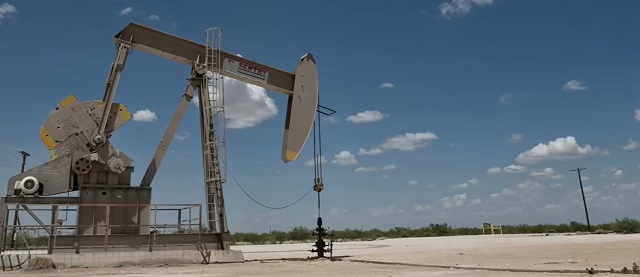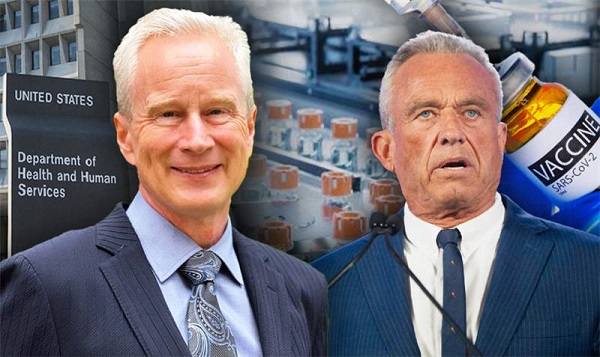Daily Caller
The Silly Peak Oil Debate Rages On

From the Daily Caller News Foundation
“What the Outlook underscores is that the fantasy of phasing out oil and gas bears no relation to fact,” said OPEC Secretary General Haitham Al Ghais
Analysts and professionals in the global energy space have long debated the prospects for reaching peak demand for crude oil. It is an issue that has long sparked debate, some of which becomes emotional among highly invested stakeholders on one side or the other.
In recent years, such stakeholders risk developing cases of whiplash when considering the competing perspectives about this “peak oil” matter published by OPEC and the International Energy Agency (IEA).
IEA has spent the last 12 months predicting an earlier advent of the peak oil phenomenon than pretty much any other experts envision, saying it will come about sometime in this decade, no later than 2030. Not surprisingly, the agency’s analysts doubled down on that projection in its most recent monthly Oil Market Report.
In a section titled “When the Music Stops,” the IEA focused on short-term factors like slowing demand growth in China, where oil consumption has declined year-over-year for the past four months. Noting that Chinese demand growth has slowed to an estimated 180,000 barrels per day (bpd) across 2024, the agency leaned on that data point as a reason to lower its estimated global demand growth to 800,000 bpd.
The same section also pointed to the isolated slowing of U.S. gasoline-deliveries growth in June — a factoid that could simply be statistical noise — as support for its annual growth forecast. But a slowdown in crude demand growth is no surprise, given that economic growth has been slowing throughout 2024. This direct cause-and-effect phenomenon has been a consistent aspect of oil markets across history. It is also a short-term factor whose impact will ultimately be diminished by subsequent events.
In contrast, OPEC’s projections over the past year regarding near-term global demand growth and the anticipated peak in oil demand have reached diametrically opposite conclusions. Last summer, the cartel projected global growth in crude demand for 2024 would be a robust 2.25 million bpd. Slowing economic growth has led OPEC’s analysts to lower that initial prediction over the past two months, but only to 2.1 million bpd — more than double that of both IEA and the U.S. Energy Information Administration (EIA).
Where the concept of peak oil demand is concerned, OPEC has held to an even more oil-bullish stance, stating its projections do not see that threshold being reached anytime during its projection timeframe through 2050. In its annual Global Outlook published last week, OPEC sees oil demand growing by that year to 120 million bpd, a rise of 18 million bpd from current levels.
“What the Outlook underscores is that the fantasy of phasing out oil and gas bears no relation to fact,” said OPEC Secretary General Haitham Al Ghais in the forward to the report.
Al Ghais also pointed out the fact that: “Over the past year, there has been further recognition that the world can only phase in new energy sources at scale when they are genuinely ready, economically competitive, acceptable to consumers and with the right infrastructure in place.” This undeniable reality means that projections of oil demand in the transportation sector being crushed by alternatives like EVs and hydrogen cars are almost certainly overly optimistic. The rapidly faltering market demand for EVs strongly supports that likelihood.
Al Ghais also contends that a “realistic view of demand growth expectations necessitates adequate investments in oil and gas, today, tomorrow, and for many decades into the future.” That contention stands in contrast to the IEA report released in May, 2021, in which IEA Director Fatih Birol urged an immediate halt in all new investments in the finding and development of new oil resources in order to fight climate change. By August of that year, Biral was comically urging oil companies to increase their oil production in order to help re-balance an undersupplied global market.
Episodes like that have led many to question whether IEA bases its projections related to oil markets on data or on wishful thinking. The validity of such questions was only reinforced when Birol announced early this year that the agency’s mission was being expanded into outright advocacy for promoting the energy transition.
So, who is right? We’ll find out in 2030, but the smart money is on the group with billions riding on the answer.
David Blackmon is an energy writer and consultant based in Texas. He spent 40 years in the oil and gas business, where he specialized in public policy and communications.
Daily Caller
Los Angeles Passes ‘Sanctuary City’ Ordinance In Wake Of Trump’s Deportation Plan

 From the Daily Caller News Foundation
From the Daily Caller News Foundation
The Los Angeles City Council approved an ordinance Tuesday designating the city as a “sanctuary city” following President-elect Donald Trump’s mass deportation plan.
This measure prevents the use of local resources for immigration enforcement and prohibits city agencies from sharing information about undocumented residents with federal immigration authorities, according to The Associated Press. The council voted unanimously, aligning Los Angeles with numerous cities across the U.S. that have adopted similar policies.
The ordinance will undergo a second council vote for procedural reasons as Mayor Karen Bass, who has expressed support for the initiative, holds veto power but is unlikely to use it, AP reported. Councilmember Hugo Soto-Martinez pointed out the city’s firm stance against cooperating with Immigration and Customs Enforcement (ICE).
🚨 President-Elect Trump has named Tom Homan as Border Czar. pic.twitter.com/XNfp4to0Ev
— Daily Caller (@DailyCaller) November 11, 2024
“We’re going to send a very clear message that the city of Los Angeles will not cooperate with ICE in any way,” Soto-Martinez said. “We want people to feel protected and be able to have faith in their government and that women can report domestic violence crimes.”
Soto-Martinez also noted that many immigrants without legal status are integral to the community, working in roles such as housekeepers, nannies, and cooks, AP reported. While the ordinance highlights the city’s values, critics argue that Los Angeles already refrains from cooperating with federal immigration agencies, suggesting the policy may not bring significant operational changes.
Trump announced that former acting ICE Director Tom Homan will take on the role of border czar in his upcoming administration. Homan will oversee border operations, including deportations, security at land and sea entry points, and aviation safety measures.
Trump revealed Monday that he plans to declare a national emergency and deploy military resources to execute his mass deportation agenda. He confirmed reports from Judicial Watch’s Tom Fitton, who claimed the administration is ready to use emergency powers to address what he called the “Biden invasion.”
Daily Caller
“I know three families that have gone to Canada.”: Locals Say Haitians Are Hoofing It Out Of Springfield After Trump Win

 From the Daily Caller News Foundation
From the Daily Caller News Foundation
‘They Are Afraid’
Haitians living in Springfield, Ohio appear to be fleeing the city in droves after President-elect Donald Trump was declared the winner of the election, according to reports from locals.
The national spotlight shined on Springfield, a city of roughly 60,000 residents nestled in central Ohio, for weeks following unverified viral online claims that Haitians migrants had been spotted butchering a pet for consumption. The subsequent uproar about Springfield sparked further media debate about mass migration and its consequences, as Springfield has been dealing with an influx of Haitian migrants in a relatively short amount of time.
“The traffic situation seems to be better now,” longtime resident Barron Seelig said to the Daily Caller News Foundation, referring to widespread accounts from city residents in past months that Haitian drivers are causing mayhem on the roads.
While Seelig did speak about local rumors of impending Immigration and Customs Enforcement (ICE) raids possibly scaring Haitians away, he also mentioned recent crackdowns by highway patrol officers and added that some migrants are leaving because they don’t enjoy the Ohio winters. Another Springfield local told the DCNF that he heard it was virtually impossible to rent a U-Haul truck because so many Haitians are currently renting them — presumably to leave town.
Those who provide services to immigrant services in the city have also said that Trump’s election victory has prompted Haitians to flee en masse.
“Some folks don’t have credit cards or access to the internet, and they want to buy a bus ticket or a plane ticket, so we help them book a flight,” Margery Koveleski, who helps Haitian migrants manage government bureaucracy, told The Guardian. “People are leaving.”
“People are fully aware of the election result, and that is why they are leaving; they are afraid of a mass deportation” Jason Payen, a co-founder of the Haitian Community Alliance, said to the Guardian.
“Several of my customers have left. One guy with his family went to New Jersey; others have gone to Boston,” Payen continued. “I know three families that have gone to Canada.”
Trump, for his part, has vowed to embark on a border enforcement agenda that will apply to the entire country.
During the campaign, Trump pledged to continue building the U.S.-Mexico border wall, revive the Remain in Mexico program, hire more border patrol agents and conduct the “largest deportation program in American history,” and end birthright citizenship for those born on U.S. soil to illegal migrant parents.
Trump said in October that he would revoke Temporary Protected Status (TPS) for Haitian nationals and “bring them back” to the country. The Biden-Harris administration has provided TPS — which temporarily gives deportation protections to its designees — to hundreds of thousands of Haitian nationals currently living in the U.S.
-

 Brownstone Institute1 day ago
Brownstone Institute1 day agoThe Most Devastating Report So Far
-

 Business1 day ago
Business1 day agoCarbon tax bureaucracy costs taxpayers $800 million
-

 ESG1 day ago
ESG1 day agoCan’t afford Rent? Groceries for your kids? Trudeau says suck it up and pay the tax!
-

 Daily Caller1 day ago
Daily Caller1 day agoLos Angeles Passes ‘Sanctuary City’ Ordinance In Wake Of Trump’s Deportation Plan
-

 John Stossel23 hours ago
John Stossel23 hours agoGreen Energy Needs Minerals, Yet America Blocks New Mines
-

 COVID-192 days ago
COVID-192 days agoDr. McCullough praises RFK Jr., urges him to pull COVID shots from the market
-

 MAiD2 days ago
MAiD2 days agoOver 40% of people euthanized in Ontario lived in poorest parts of the province: government data
-

 Alberta1 day ago
Alberta1 day agoProvince considering new Red Deer River reservoir east of Red Deer






